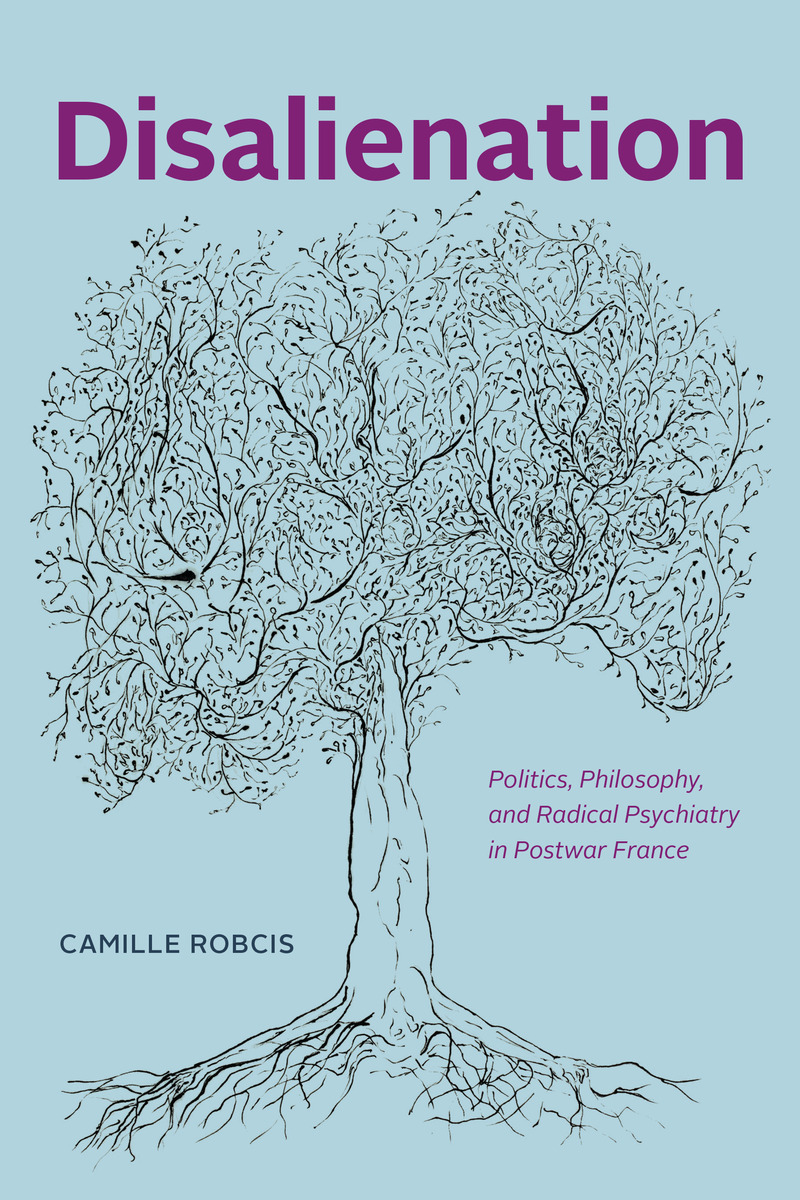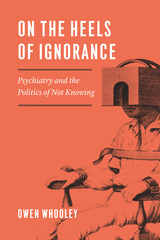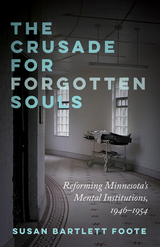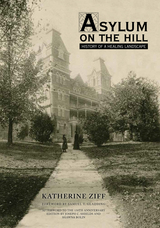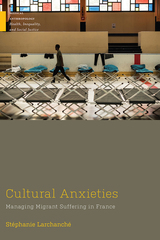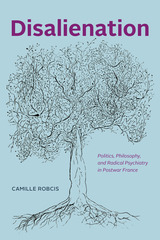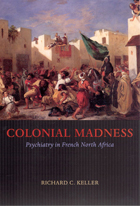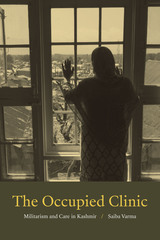"This is a superb history of how the theory and praxis of institutional psychotherapy inflects the work of French thinkers. Robcis reframes the intellectual history of a strain of French theory by explaining not only the influence of institutional therapy and antipsychiatry on the works of diverse thinkers, but also the deep political and affective commitments that infuse and shape them. It is an insightful account of the constellation out of which emerged some of the most consequential ideas in late-twentieth-century French thought. An impressive achievement."
— Carolyn J. Dean, author of The Moral Witness: Trials and Testimony after Genocide
"As Robcis re-creates the imaginative and practical contexts in which a profound revolution in psychiatric care was implemented at the nexus of antifascism, Surrealism, resistance to Nazi occupation, and decolonial insurgency, she models a marvelously fresh approach to intellectual history, with genuinely new takes on such iconic figures as Fanon, Foucault, and Guattari. Disalienation clarifies, from myriad vantages, the constant inextricability of psychic and political processes."
— Dagmar Herzog, author of Unlearning Eugenics: Sexuality, Reproduction, and Disability in Post-Nazi Europe
"Fascism and collaboration with it are not just political choices: they also demand a particular state of mind. In this study of institutional psychotherapy in postwar France, Robcis presents us a gripping and wide-ranging analysis of authoritarianism’s entanglements with histories of colonialism and violence. Configuring institutional psychotherapy as a form of political theory, Robcis deterritorializes psychoanalysis. In the process, she brings together the psychic and the political, the asylum and the colony, and the mother and the motherland."
— David L. Eng, coauthor of Racial Melancholia, Racial Dissociation: On the Social and Psychic Lives of Asian Americans
"Totally fascinating."
— J. J. Mull, New Books in Psychoanalysis
“The central journey charted here is the rise and fall of ‘institutional psychotherapy’ – a model of psychiatric treatment developed by Francois Tosquelles, a psychiatrist who fled from Catalonia to Vichy France... In composing this narrative arc, Robcis feels in total command of her archival material. But what stands out is her articulation of the mediums and agencies that served to propel concepts in unison, while others were overshadowed and eclipsed. As a non-specialist, I was swept along by her ability to make clear, nuanced argument amid richly-textured contexts. The last chapter presents a thrilling account of how Foucault made parts of his own history disappear (though downplaying the extent to which he was once entangled amongst Saint Alban’s ideas-figures). Photographs and illustrations add to the sense of ideas being made manifest in material form – through architecture, posters, letters and artworks – as well as embodied by doctors and patients through their densely-woven (dis)associations... This dynamic approach marks this book out from others that take a more detached stance on what ‘French Theory’ is and how it can be understood – it is far more relational, playful and in sync with the spirit of her protagonists (and less ‘French’ too).”
— Polyphony
"[A] brilliant new book. . . . What is perhaps most effective about Robcis’s approach to the topic is he rdemonstration of the importance of historical context and contingency: she is not only a keen interpreter of difficult concepts, but also an outstanding historian."
— Psychoanalysis and History
"As Camille Robcis shows in her brilliant study of mid-twentieth century radical psychiatry, some of the most incisive critiques of the profession emerged from within its ranks during and after the war. Men like François Tosquelles, Frantz Fanon, Felix Guattari and Jean Oury sought to remake psychiatry in such a way as to challenge the very hierarchies that the discipline had long supported. . . . One of the great strengths of Robcis’ argument is her insistence that radical psychiatry was as much about politics as the psyche—an argument that would have appealed to radical psychotherapists themselves."
— Social History of Medicine
"An intricate exploration of the political and theoretical dimensions of institutional psychotherapy, the reform movement that began at Saint-Alban; and of the intellectual legacies of its adherents. These include several major 20th-century thinkers whose well-known philosophical works, Robcis argues, owe more to their backgrounds in psychiatry than many of their contemporary readers may realize."
— Counterpoint
"Adopting an intellectual history perspective, Camille Robcis’ objective is to understand institutional psychotherapy as a laboratory for elaborating and testing a ‘politics of madness’, drawing together ideas from psychiatry, philosophy, and politics between 1945 and 1975."
— Metascience
“Robcis offers a very subtle and refined depiction of the postwar interweaving of psychiatry and politics. She tells a fascinating history of conceptual transfers, borrowings, and adaptations between the two spheres. . . . This highly stimulating book will appeal to a very large audience—and not only to historians of psychiatry. While the spirit of the time is now more inclined toward psychiatric ‘deinstitutionalization,’ this volume also offers inspiring thoughts on the role of the hospital as a ‘laboratory of political invention.’”
— Isis
“A novel contribution to the history of psychiatry and psychotherapy . . . Disalienation is also an exciting piece of intellectual history. It offers incisive re-readings of key proponents of ‘French theory’ such as Felix Guattari, Frantz Fanon, and Michel Foucault, paying attention to their often-obscured medical lives. . . . The chapter on Foucault is nothing short of breathtaking.”
— American Historical Review
“Disalienation cuts a fresh and original path through the tangled history of French theory. Readers of Robcis’s first book, The Law of Kinship, will know her extraordinary ability to assemble new contexts for canonical works, and this is again on full display in Disalienation. Following the thread of institutional psychotherapy and mobilizing a rich array of archival documents, Robcis brings renowned thinkers into dialogue with more obscure institutional ones and offers new readings of Fanon, Guattari, and Foucault. The story Disalienation pursues is harrowing and bears witness to the traumas of war, fascism, resistance, encampment, and empire. It is, moreover, told by Robcis with great skill and elegance, moving seamlessly between periphery and metropole, institution and thinker. As such, Disalienation will appeal to lay readers and specialists alike and will perhaps call to mind classic histories of the European psyche by Carl Schorske, Jan Goldstein, and Debora Silverman.”
— Journal of Modern History
"Disalienation is a rich, ambitious, and sophisticated account of the intellectual history and political implications of institutional psychotherapy (IP)."
— Richard Bates, H-France Review
